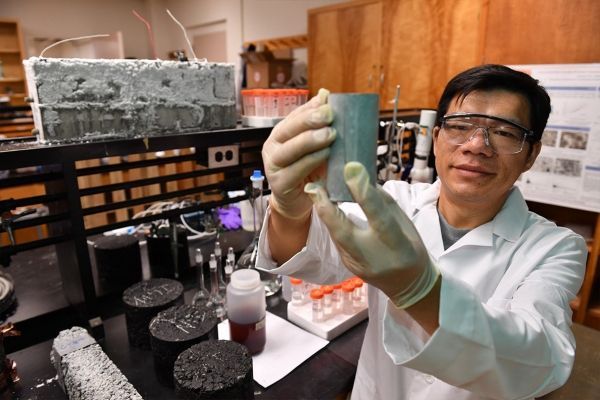Common magnesium chloride deicers used on roadways and bridges around the U.S. may be doing more damage than previously thought, researchers have found.
Additionally, that damage is unlikely to be detected using standard visual inspections, the typical method of assessing bridge health.
Researchers from Washington State University and Montana State University found that samples of concrete exposed to magnesium chloride in the laboratory with repeated freeze-and-thaw cycles lost more strength than samples exposed to rock salt – even though they showed no visual signs of damage.
The researchers report on their work in the journal, Cement and Concrete Research.
The work was funded by the US and Oregon Departments of Transportation as well as by the National Natural Science Foundation of China.
Read more at Washington State University
Photo: Xianming Shi in the lab. CREDIT: Washington State University


